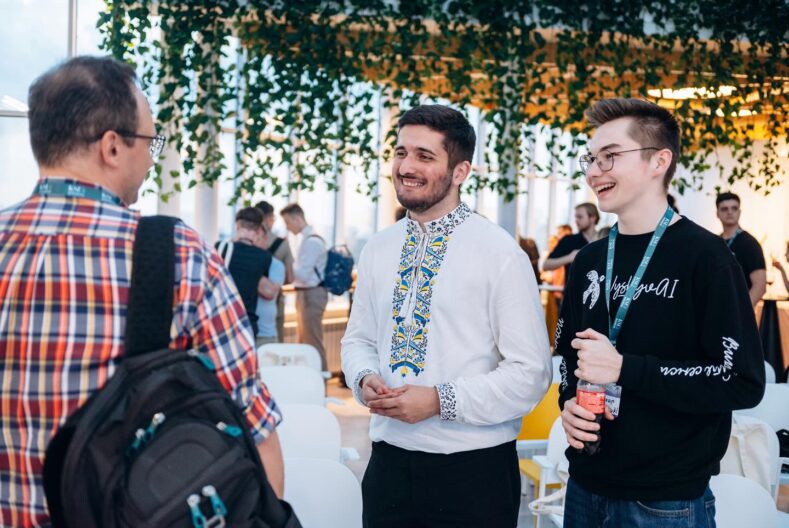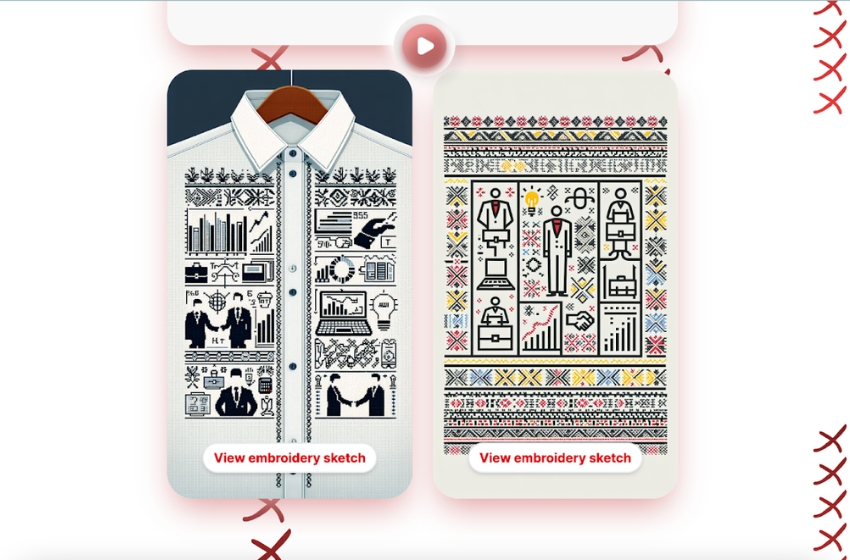The founders of the startup VyshyvAI are preparing to launch their product to the market. According to them, it will help users create "personalized clothing with deep meaning."
Olexander Maslovsky, CEO and co-founder of the startup, shared this with Vector magazine. In addition to him, the project has two other co-founders: Zakhar Starik (COO and CFO) and Dmytro Kolysnyk (CTO).
VyshyvAI is a website with an AI platform for creating personalized embroidered shirts. Users can encode any meanings into the embroidery by writing text. The AI can transform quotes into unique patterns, which are then embroidered onto clothing. The algorithm analyzes the input data and creates designs that combine traditional Ukrainian motifs with modern trends.
"We tested the prototype with friends and family, gathered feedback, and refined the system. We have already conducted a test launch of targeted advertising on Google, receiving over 3,000 interests in less than two days. Our visitors generated over 1,500 patterns," Maslovsky reported.
He added that the developers are currently working on improving the results and preparing for the market launch. The target audience for the product includes Ukrainians aged 25-45, the Ukrainian diaspora, and enthusiasts of ethnic clothing worldwide. According to VyshyvAI, about 80% of those interested are women.

VyshyvAI's business model is B2C. They plan to sell personalized embroidered shirts directly through an online platform. Customers will be able to choose a basic template, encode their own meanings through text, and receive a unique embroidered shirt that reflects their personal story.
The developers also aim to set up a model for generating special prompts for subsequent sales.
"For example, we could create corporate embroidered shirts for companies that want to highlight their cultural identity and support Ukrainian traditions," Maslovsky said.
VyshyvAI has invested $3,000, and they need an additional $220,000 to launch the product. This will be used for technology improvement, marketing, operational expenses, and partnerships. In the next six months, the founders plan to fully launch the product and later establish their own production facilities and, in the long term, support more artisans in towns and villages.



















